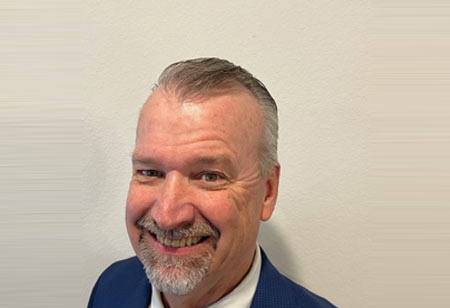

Thank you for Subscribing to Hospitality Business Review Weekly Brief

Human Resource professionals have ever-expanding responsibilities in the operation of nearly every organization. Each year brings new changes and challenges for organizations, and HR is at the forefront of implementing these changes. These changes can come internally or externally. The recent Covid-19 pandemic is a prime example of how HR was requested to provide leadership and direction in adapting to the critical changes of that time and their effect on the future. I recall being involved in changes to policies, procedures, and even physical alterations to the work environment during that time. This required employee training in all these changes and continuous updates. While HR rapidly adapts to such changes, there are constant strategies. One includes the need for continuous learning, training, and development. This is necessary for all organizations wanting to remain relevant to their purpose.
Regarding training and development, there is no such thing as a ‘Status Quo.’ This is true for an organization as well as the individual. I recall when my high school graduation approached, I thought, ‘I’m almost done, then my brain can take a rest.’ Nothing could be further from the truth. Learning is a daily and a lifetime activity. I learned this when I went on to college and through all the self-study to advance my career. When an individual chooses to stop or take an extended break from learning, most of the world continues to move forward and will pass them by. When an organization fails to prioritize training and development, its competitors will pass it by. If the organization does not have a competitive function and fails to train and develop, it becomes less effective in its mission.
HR professionals are responsible for taking ownership of their development to provide the best service and leadership to their organization
We may have all heard the saying, ‘Do not rest on your laurels.’ So many examples of companies were industry leaders at one time and later became insignificant in their industry. I remember Sears in the 1980s was the largest retailer in the United States. It was America’s store. My first credit card was a Sears card. I thought they would be around forever because they had everything going for them. They owned the brands people respected and wanted: Kenmore, Craftsman, and Diehard, just to name a few. Where are they today? Walmart is now the number one on the Fortune 500 list. It will be interesting to see how long they remain there as Amazon. Currently, the number continues to grow.
For the HR professional, continuing education must remain pertinent to their organization. The HR Certification Institute and the Society of Human Resource Management set the standard for continuing education. After passing through the testing process to become certified, one must periodically pass the test again to maintain certification, or one can recertify through documented continuing education. I have been PHR certified by the HRCI since 1999 and have always maintained my certification through continuing education.
HR professionals are responsible for taking ownership of their development to provide the best service and leadership to their organization. We also have a responsibility to be the voice that promotes training and development for newly hired employees and all employees in the organization. As a frontline operations manager, I proposed training everyone on everything they could know. There are great benefits to such in-depth training. Surveys reveal that one of employees' top expectations of their employers is to receive training and development. It also fulfills succession planning needs by preparing them for the following positions. Then, of course, it makes a leader’s job much easier by being able to delegate almost anything to anyone. This is a win-win. It gives the employee needed experience while freeing up the leader for planning and leading.
When I am instructing a group of new managers, I always intend to instill in them an understanding of the ‘Big Picture’ or ‘Why we exist, our purpose’ (not a spiritual question). When I ask questions about these things, they start thinking not about the day-to-day tasks but the goals and priorities of the organization. Then, how are their goals and priorities aligned to drive those of the organization? They return to their locations with a new sense of responsibility to lead their teams by training and developing them to drive the organization’s goals and priorities. To stay relevant to the current day, no individual or organization should ever stop learning tr, training, and developing others.
I agree We use cookies on this website to enhance your user experience. By clicking any link on this page you are giving your consent for us to set cookies. More info